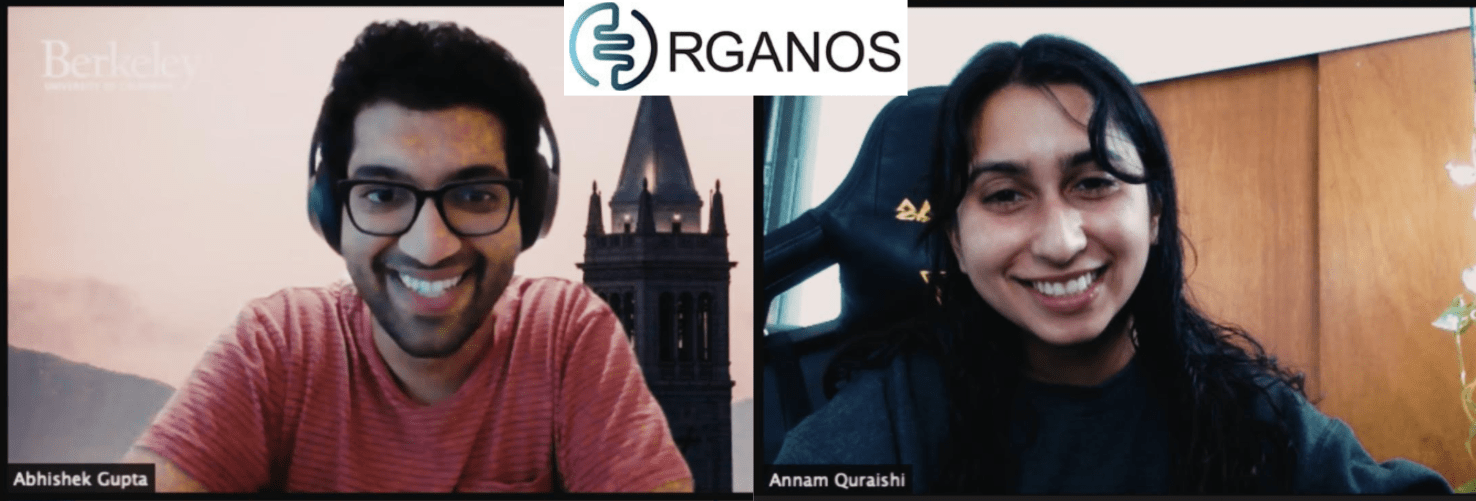“Is it really safe?” Those are whisperings folks hear amongst discussions regarding any new drug that is being developed. When the Covid-19 vaccines were first being developed and pushed out to the population, it seemed like every news outlet did a deep dive into safety and numbers as new drugs such as #Pfizer, #Moderna, and #JnJ became trending hashtags. For those new to the pharmaceutical industry, the drug attrition rate (96% due to safety and efficacy concerns), cost of production($3-$5B), and time to market (9-15 years) is extremely high. Organos is an intelligent drug discovery platform for cardiovascular diseases by using an organ-on-a-chip technology and data science capabilities that hopes to bring drugs to market more safely, at less cost, and less time.
Professor Kevin Healy has been researching the organ-on-a-chip and Microphysiological Systems( MPS) for more than a decade. Since the inception of the company in 2016, the founders Kevin Healy and Samuel Wall have gone through many lean-startup programs including the I-Corps Regional program and Skydeck to develop their business model and find their right product-market-fit. I had the pleasure of interviewing Abhishek Gupta, UC Berkeley Haas MBA/MPH (‘22) and Head of Business Operations at Organos and he describes the benefits of the lean startup method through real situations during his time there.
Their most recent pivot included moving away from being a Contract Research Organization (CRO) startup, into creating their own drug discovery platform. What caused this pivot? Abhi says it is the “valuable interviews from potential customers in the pharmaceutical industry that were advocated from the lean-startup method. The customer discovery, interview, experiment, and pivot framework after validating and invalidating hypothesis helped the company get closer to the desired business model”. At first, they asked themselves if Organos was a viable CRO Company in the cardiovascular space. After interviewing pharma executives, researchers, and Venture Capitalists (VC) in the space, they received feedback that Organos as a pre-clinical safety company wouldn’t be as valuable and would rather see a Minimal Viable Product (MVP) built around drug discovery. The value proposition regarding the reduction of cost in the early drug discovery is what got their customers, and investors, excited and put a smile on their faces. By receiving valuable feedback from their interviews, Organos was able to get back into the lab and re-tool their device to make it capable for drug discovery in the cardiac space.
Abhi reflects that in the end, asking the question, “What do my customers really value?” , was the most important question, and the most complicated one to answer. In the biotech industry, it is harder to develop an MVP in a couple days and get customer feedback. The time to rise for biotech is 5-8 years due that time constraint. It was a challenge for Organos to develop MVPs and therefore used a lean strategy by asking themselves “How do we add value to our current customer and our future customers through partnerships in the drug discovery space?”. They identified the Key Relationships in their business model canvas and use customer interviews to learn how to get, grow, and keep those relationships.
Would Organos have made those important pivots without the lean startup method? Abhi says, “No, absolutely not”. With biotech and the life-sciences, it is easy for the technology inventors to only communicate with academia, and it is quite the learning curve for them to venture out into the real world and get data points that support their technology into becoming a business. Bringing them out of their lab to the customers is Lean Startup Tip 101. The team strives to continue using lean practices as they continue to grow and expand their business. Stay tuned in the news for major developments for this company as they revolutionize drug discovery and the organ-on-a-chip technology.
